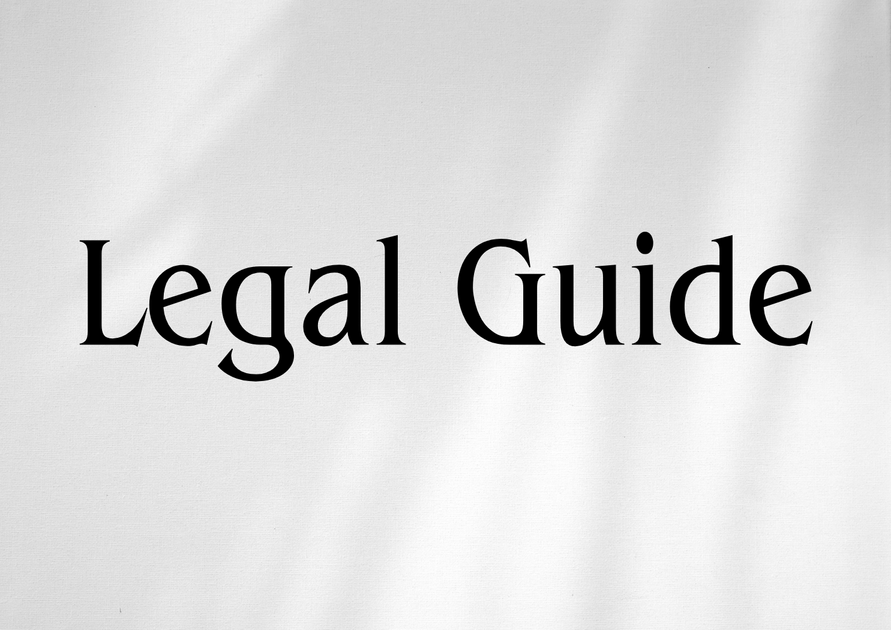Introduction: The Growing Importance of ADCCAC in the UAE’s Legal Ecosystem
The Abu Dhabi Commercial Conciliation and Arbitration Centre (ADCCAC) has become a pivotal institution for alternative dispute resolution (ADR) in the UAE, underscoring the nation’s commitment to modernizing its legal framework. As Abu Dhabi cements its status as a leading regional commercial hub and the UAE undertakes significant legislative reforms in line with Vision 2030, understanding the processes, legal foundations, and best practices surrounding ADCCAC is essential for businesses, in-house counsel, HR leaders, executives, and legal professionals.
This consultancy-grade analysis explores ADCCAC’s role, recent updates emanating from Federal Decree Laws and Cabinet Resolutions, and strategic guidance for effective dispute management. We provide a practical roadmap for staying compliant and proactive under the latest UAE law 2025 updates while leveraging the advantages of arbitration and conciliation within this key Abu Dhabi-based institution.
Table of Contents
- Overview of ADCCAC: Foundation, Mandate, and Legal Framework
- ADCCAC and the Evolution of UAE Arbitration Law
- Detailed Breakdown: Conciliation and Arbitration Processes at ADCCAC
- Comparison with Previous Legal Frameworks
- Practical Implications and Use Cases for UAE Businesses
- Risks of Non-Compliance and Strategic Compliance Initiatives
- Case Studies: How ADCCAC Shapes Real-World Disputes
- The Future of ADR in Abu Dhabi: Legal Updates and Best Practices
- Conclusion: Proactive Strategies in the Changing UAE Legal Environment
Overview of ADCCAC: Foundation, Mandate, and Legal Framework
Establishment and Mandate
Founded in 1993 under the auspices of the Abu Dhabi Chamber of Commerce and Industry (ADCCI), the Abu Dhabi Commercial Conciliation and Arbitration Centre (ADCCAC) serves as the Emirate’s cornerstone for the resolution of domestic and international commercial disputes.
ADCCAC’s primary mission is to facilitate efficient, confidential, and binding dispute resolution through arbitration and conciliation, fostering a stable and investor-friendly environment in Abu Dhabi. Its mandate is intricately linked with the Chamber’s objective to enhance business confidence and legal predictability.
Legal Foundation
ADCCAC’s operations are anchored in:
- Law No. (8) of 2018 Concerning Arbitration (the “UAE Arbitration Law”), modeled after the UNCITRAL Model Law
- Federal Decree-Law No. (42) of 2022 Concerning the Promulgation of the Civil Procedure Law, which complements dispute resolution procedures
- Relevant Cabinet Resolutions and Ministerial Guidelines as periodically updated
The ADCCAC rules are harmonized with these statutory foundations to ensure local and international enforceability of arbitral awards under the New York Convention.
ADCCAC and the Evolution of UAE Arbitration Law
Historic Approach to Arbitration in the UAE
Prior to the enactment of the landmark Federal Law No. (6) of 2018 on Arbitration, the UAE’s arbitration framework was scattered and significantly reliant on the provisions of the Civil Procedure Code. This structure, at times, led to procedural uncertainties, judicial intervention, and enforceability challenges.
With the introduction of the UAE Arbitration Law in 2018, the regime aligned closely with international best practices, particularly the UNCITRAL Model Law, enhancing predictability, party autonomy, and the global enforceability of awards. The 2025 legal updates, reflected in Federal Decree-Law No. (42) of 2022 and related Cabinet Resolutions, continue this momentum through further refinement of ADR processes and the recognition of electronic and remote proceedings.
| Aspect | Before Law No. (6) of 2018 | After Law No. (6) of 2018 / ADCCAC Compliance |
|---|---|---|
| Legal Foundation | Civil Procedure Code | Dedicated Arbitration Law |
| Judicial Intervention | Frequent and expansive | Limited, pro-arbitration approach |
| Recognition of Awards | Inconsistent | Alignment with New York Convention and international practice |
| Party Autonomy | Restricted | Broader autonomy (choice of law, seat, language) |
| Electronic Proceedings | Rarely recognized | Embraced under recent updates |
Legislative Updates Impacting ADCCAC in 2025
With the UAE continually evolving its legislative environment, 2025 expectations include greater digitization and the streamlining of arbitration and conciliation procedures. Key highlights as per the UAE Government Portal and Federal Decree-Law No. (42) of 2022:
- Further acceptance of remote hearings and electronic submission of evidence.
- Enhanced rules on arbitrator neutrality, disclosure, and appointment.
- More robust enforcement mechanisms domestically and with foreign arbitral awards.
- Fast-track procedures for certain commercial disputes.
Detailed Breakdown: Conciliation and Arbitration Processes at ADCCAC
Step-By-Step Guide: Arbitration at ADCCAC
- Submission of Request: The claimant initiates proceedings by submitting a formal request, necessary documentation, and payment of filing fees.
- Formation of the Arbitral Tribunal: Panel can consist of single or multiple arbitrators, selected as per parties’ agreement or ADCCAC rules.
- Preliminary Proceedings: Includes case management conferences, timelines for submissions, and clarity on jurisdictional objections.
- Hearing Process: Evidence is presented; parties may be represented by counsel. Recent updates now allow for remote participation subject to the parties’ agreement and tribunal discretion.
- Issuance of the Award: The tribunal renders its decision within the stipulated period, with ADCCAC ensuring procedural compliance throughout.
Conciliation at ADCCAC
ADCCAC also offers conciliation—a voluntary process aimed at an amicable settlement overseen by a neutral conciliator. If parties reach agreement, the settlement is documented and can be rendered enforceable as an arbitral award by the Centre.
| Stage | Conciliation | Arbitration |
|---|---|---|
| Initiation | By mutual agreement | By arbitration clause/request |
| Neutral Selection | Conciliator from panel | Arbitrator(s) from panel or by parties |
| Outcome | Settlement agreement | Binding arbitral award |
| Enforceability | Parties’ contract/court order | Under UAE law & New York Convention |
Fee Structure and Timeframes
ADCCAC operates on a transparent fee schedule, including registration fees, arbitrator/conciliator fees (based on claim value), and reimbursable expenses. Recent amendments ensure capped timetables for the resolution, offering commercial certainty to disputing parties.
Comparison with Previous Legal Frameworks
Enforceability of Arbitral Awards
Historically, conversion of arbitral awards to enforceable orders required lengthy judicial scrutiny. Under the post-2018 regime, and especially the 2025 legal updates, ADCCAC awards are now primarily recognized and enforced under streamlined procedures, reducing judicial interference while ensuring due process.
| Factor | Pre-2018 | 2025 and Beyond |
|---|---|---|
| Award Enforcement | Court approval often re-examined merits | Limited to procedural review |
| Foreign Award Enforcement | Lack of clarity on New York Convention | Explicit compliance and reciprocity |
| Challenging Awards | Broad bases for annulment | Stricter, time-bound grounds |
Practical Implications and Use Cases for UAE Businesses
When Should Businesses Use ADCCAC?
ADCCAC is suitable where parties seek expedited, confidential, and expert-driven resolutions. Key contexts include:
- Complex commercial contracts (construction, M&A, joint ventures)
- Shareholder and partnership disputes
- Real estate, agency, and distribution agreements
- Cross-border transactions requiring enforceability in multiple jurisdictions
Contract Drafting Tips for ADCCAC Arbitration
Legal practitioners are advised to include arbitration clauses referencing ADCCAC, with specificity on:
- Number and selection of arbitrators
- Seat and language of arbitration
- Application of ADCCAC rules (with reference to latest edition)
- Governing law of the contract and arbitration
Organizational Advantages
- Mitigates reputational risk from public litigation
- Access to expert neutrals with sector-specific expertise
- Flexible schedules and confidentiality
- Alignment with the UAE Vision 2030 pro-business regulatory agenda
Risks of Non-Compliance and Strategic Compliance Initiatives
Risks in the New Era of UAE Arbitration
Non-compliance with ADCCAC rules and the updated UAE legal framework may lead to:
- Ineffective dispute resolution mechanisms in contracts
- Possible invalidation of arbitral clauses (e.g., if non-signatory or contradictory terms are present)
- Delays and additional costs from remedial litigation
- Potential for awards to be annulled or unenforceable domestically or abroad
Businesses must also consider data privacy and evidentiary rules when participating in electronic proceedings, as mandated by UAE Cabinet Resolutions and ADCCAC’s procedural guides.
Compliance Strategies for Corporate Entities
- Legal Audit: Regularly review contracts to ensure arbitration clauses are current and enforceable under UAE Law No. (8) of 2018 and related ADCCAC rules.
- Training of Stakeholders: Equip legal teams, executives, and HR with up-to-date guidance on ADR best practices, leveraging Ministry of Justice resources.
- Document Retention and Digital Readiness: Enhance compliance with electronic evidentiary standards as stipulated in latest Cabinet directives.
- Engagement with Experienced Counsel: Preferably, involve registered UAE legal consultants familiar with ADCCAC’s evolving protocols.
| Action | Best Practice |
|---|---|
| Contract Review | Ensure ADCCAC reference and seat/language clarity |
| Arbitrator Selection | Follow updated rules on neutrality and disclosure |
| Filing Process | Timely submission and digital documentation compliance |
| Confidentiality | Adopt NDAs and compliance with UAE data protection |
Case Studies: How ADCCAC Shapes Real-World Disputes
Case Study 1: Construction Dispute Resolution
Background: A multinational engineering firm entered an Abu Dhabi infrastructure project; payment delays triggered a dispute. With a well-drafted ADCCAC clause, the issue was resolved via arbitration in 9 months, avoiding protracted litigation and settling out-of-court with enforceable terms across borders.
Case Study 2: Real Estate Agency Dispute
Background: Two UAE-based real estate agencies disagreed over commission payments on a joint transaction. Opting first for ADCCAC conciliation, parties reached a binding, confidential settlement in under 60 days—preserving future business relationships and controlling costs.
Hypothetical Scenario: Data-Driven Commerce and Electronic Hearings
With the increased digitization in UAE business, ADCCAC has effectively used remote hearings for a software licensing dispute. Both parties, represented by their respective legal teams, presented electronic evidence, leading to rapid adjudication and subsequent enforcement of the award locally and internationally.
Visual Suggestion: Outcome comparison chart for cases resolved via ADCCAC vs. traditional courts—consider including metrics such as time, cost, enforceability, and confidentiality.
The Future of ADR in Abu Dhabi: Legal Updates and Best Practices
The UAE’s forward-looking legislative agenda positions ADCCAC at the vanguard of regional ADR. With the adoption of Federal Decree-Law No. (42) of 2022 and complimentary Cabinet Resolutions, the Centre is becoming increasingly accessible for international parties while maintaining a rigorous, business-friendly procedural regime.
Key drivers shaping the future include:
- Integration of artificial intelligence and digital platforms for case management
- Continued governmental support for capacity building among ADR professionals
- Stronger cooperation with global arbitral bodies to increase international enforceability
- Refined data privacy and cybersecurity protocols in dispute resolution processes
Recommendations for Businesses and Legal Teams
- Monitor official sources (Ministry of Justice, Federal Legal Gazette) for updates
- Maintain a proactive dispute avoidance culture through training and compliance
- Frequent contract reviews coinciding with key legal updates
- Leverage ADCCAC conciliation as a first recourse for preserving commercial relationships
Conclusion: Proactive Strategies in the Changing UAE Legal Environment
The ongoing modernization of UAE arbitration and conciliation law, and the central role of ADCCAC, marks a new era of legal certainty and commercial confidence. For businesses and professionals operating in Abu Dhabi and across the Emirates, the key to effective risk management now lies in strategic alignment with the latest legal requirements, robust contract management, and informed use of ADR mechanisms.
As the UAE continues to set the regional benchmark for judicial efficiency and business friendliness, working with experienced legal consultants who are attuned to the nuances of ADCCAC and recent federal decree UAE updates will be indispensable. Stay ahead of compliance risks and capitalize on the flexible, enforceable, and confidential dispute resolution framework that ADCCAC provides.
For bespoke guidance on structuring ADCCAC arbitration clauses or managing arbitration/conciliation, consult a qualified UAE legal advisor tailored to your business sector.




